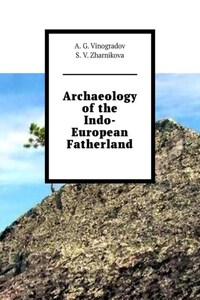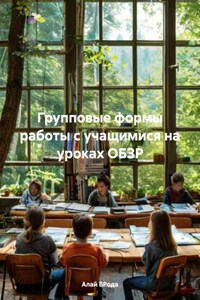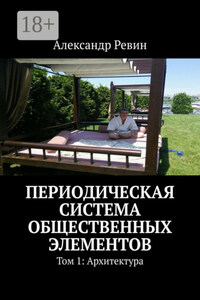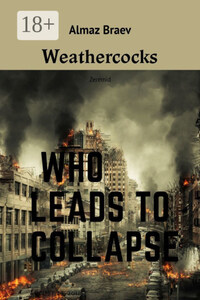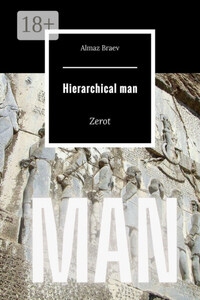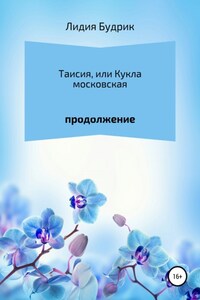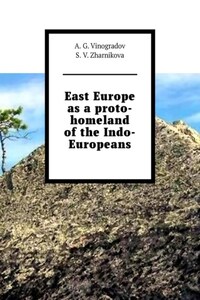Illustrator Алексей Германович Виноградов
Translator Алексей Германович Виноградов
© A. G. Vinogradov, 2025
© S. V. Zharnikova, 2025
© Алексей Германович Виноградов, illustrations, 2025
© Алексей Германович Виноградов, translation, 2025
ISBN 978-5-0065-3102-4
Created with Ridero smart publishing system
![]()
Russia is a country of eternal change and is completely not conservative, and a country beyond conservative customs, where historical times live, and do not part with rituals and ideas. The Russians are not a young people, but the old ones – like the Chinese. They are very old, ancient, conservatively preserved all the oldest and do not refuse it. In their language, their superstition, their disposition, etc., you can study the most ancient times.
Victor von Hyun. 1870.
The book of outstanding researchers S. V. Zharnikova and A. G. Vinogradov «Archeology of the Indo-European Fatherland» is devoted to the study of the ancestral home of the Indo-European peoples and is dedicated to the archeology of the ancestral home of the Indo-European. The origin of their rites and traditions. The book was written in 1989—90 but could not be published in Russia. Over the past time, additional materials have appeared that confirm the opinion of the authors. The book includes an archaeological atlas of the Indo-European fatherland.
In the modern world, the urgency of the problems of the ethnic history of the peoples of various regions of our planet is obvious. The growth of ethnic self-awareness, which has been observed everywhere in recent decades, is accompanied by an increase in interest in the historical past of peoples, in the transformations that each of them experienced during its many thousand-year-old formation. It became a spiritual need for a representative of a modern urbanized society to find the roots of his ethnic existence, to understand the diverse processes that led to the formation of that ethnocultural environment through which he perceives the world around him.
Since the origin and historical existence of the overwhelming majority of the peoples of our planet was associated with numerous migrations, shifts to new territories, causing changes in a number of cultural factors, both among the alien people and the indigenous population, today, studying the ethnic history and culture of people, we, of course, study them in the process of historical transformations and mutual influences of many tribes and peoples, to one extent or another took part in their formation.
Regional ethnohistorical research in our time is becoming especially acute, since it is knowledge of the history of one’s own people that helps a modern person to free himself from the narrowness of the nationalist view of the world, to understand the role and significance of the contribution to the common treasury of human culture of all peoples, to realize that humanity is one. Of course, it is impossible to solve the most difficult issues of ethnic history today without involving data from the most diverse fields of science.
It is necessary to combine the efforts of ethnographers, historians, archaeologists, linguists, folklorists, anthropologists, art historians, as well as paleobotanists, paleozoologists, paleoclimatologists and geomorphologists, since the development and formation of peoples took place in certain climatic zones, in certain landscapes, with a certain flora and fauna, and this must be taken into account. Only if the questions posed by ethnic history will be given mutually supportive answers by all of the above branches of science, we can, with a certain amount of confidence, believe that we are close to a true understanding of a particular stage of the historical process.
Therefore, at present, the search for an answer to any of the questions of the ethnic history of peoples cannot be considered legitimate without involving data from related sciences. This book answers this question.
It was written in 1989—90. And since then could not be published in Russia.
Although over the past time additional materials have appeared that confirm the opinion of the authors, nevertheless, we decided not to make changes, and publish it in the form in which it was written 30 years ago.
Among the many unresolved problems of the many thousand-year history of the peoples of Eurasia, one of the most interesting is the problem of the ancient history of the European North of our country of that distant time, in which we must look for the origins and roots of a peculiar and unique North Russian folk culture.
«The tale of the North is deep and captivating,» wrote Nikolai Konstantinovich Roerich. «The northern winds are cheerful and cheerful. The northern lakes are thoughtful. The northern rivers are silvery. The darkened forests are wise. The green hills are experienced. The gray stones in the circles are full of miracles. We are all looking for the beautiful Ancient Rus.»
N. K. Roerich. Kissing Dawns
«The people do not remember that he would ever invent his mythology, his language, his laws, customs and rituals. All these national foundations have already deeply entered into his moral being, like life itself, which it has lived through for many prehistoric centuries, as past «on which the real order of things and the whole future development of life firmly rests. Therefore, all moral ideas for the people of the primitive age constitute its sacred tradition, great native antiquity, holy covenant of ancestors to descendants,» – these words of the outstanding Russian folklorist of the 19th century V. I. Buslaev, uttered by him at a ceremony in Moscow University in 1889, have not lost their relevance in our days.
